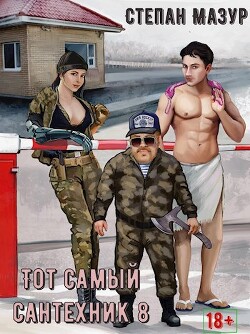John Creasey - Kill The Toff
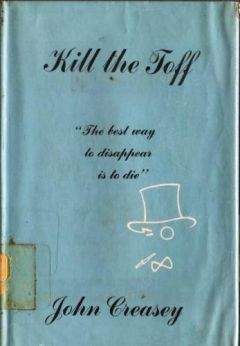
Помощь проекту
Kill The Toff читать книгу онлайн
JOHN CREASEY
Kill The Toff
Copyright Note
This e-book was created by papachanjo, with the purpose of providing a digitized format of the books written by John Creasey without the least intention of commercial gain of any sort. This e-book should hence be utilized for reading only and if you like it and can buy it, please do to support the publishers.
This book was scanned by a friend in America along with others.
I am trying to create at least an ample collection of all the John Creasey books which are in the excess of 500 novels. Having read and possess just a meager 10 of his books does not qualify me to be a fan but the 10 I read were enough for me to rake up some effort to scan and create these e-books.
If you happen to have any John Creasey book and would like to add to the free online collection which I’m hoping to bring together, you can do the following:
Scan the book in greyscale
Save as djvu — use the free DJVU SOLO software to compress the images
Send it to my e-mail: [email protected]
I’ll do the rest and will add a note of credit in the finished document.
from back cover
Judith Lome is distraught; her fiance, James Mellor, has disappeared. He’s accused of murder—something she finds impossible to believe. But the man Clarissa Arden also knows as James Mellor is quite capable of committing murder. James, meanwhile, is in a dingy bedsitter in a state of panic and about to take his own life. Into this confusion steps The Toff. Moving with debonair charm between the country houses of the gentry and the low dives of the East End, he must disentangle the threads of blackmail and hatred if he is to succeed in preventing the deaths of innocent men.
Table of Contents
Copyright Note
Foreword
Chapter One
Chapter Two
Chapter Three
Chapter Four
Chapter Five
Chapter Six
Chapter Seven
Chapter Eight
Chapter Nine
Chapter Ten
Chapter Eleven
Chapter Twelve
Chapter Thirteen
Chapter Fourteen
Chapter Fifteen
Chapter Sixteen
Chapter Seventeen
Chapter Eighteen
Chapter Nineteen
Chapter Twenty
Chapter Twenty-One
Chapter Twenty-Two
Foreword
Richard Creasey
The Toff—or the Honourable Richard Rollison—was “born” in the twopenny weekly Thriller in 1933 but it was not until 1938 that my father, John Creasey, first published books about him. At once the Toff took on characteristics all his own and became a kind of “Saint with his feet on the ground.” My father consciously used the Toff to show how well the Mayfair man-about-town could get on with the rough diamonds of the East End.
What gives the Toff his ever-fresh, ever-appealing quality is that he likes people and continues to live a life of glamour and romance while constantly showing (by implication alone) that all men are brothers under the skin.
I am delighted that the Toff is available again to enchant a whole new audience. And proud that my parents named me Richard after such an amazing role-model.
Richard Creasey is Chairman of The Television Trust for the Environment and, for the last 20 years, has been an executive producer for both BBC and ITV.
It was John Creasey who introduced him to the world of travel and adventure. Richard and his brother were driven round the world for 465 days in the back of their parents’ car when they were five and six years old. In 1992 Richard led “The Overland Challenge” driving from London to New York via the Bering Strait.
CHAPTER ONE
“The Best Way To Disappear . . .”
Mellor flinched as if the pale blue paper were red-hot, dropped it and backed away as it fluttered to the thread-bare carpet. The pale blue envelope, torn where he had ripped it open, quivered in his left hand. Except for this trembling he stood still, watching until the letter settled. Even then he could read the black, block capitals.
The best way to disappear is to die
Suddenly he screwed up the envelope and flung it across the tiny room. It hit the wall, dropped on to the unmade bed and rolled down the heap made by his red-and-white-striped pyjamas. It quivered on the edge, then fell to the floor.
“I can’t stand it, I just can’t stand it any longer.”
He read the message again; then stared at the gas fire where the broken white mantles looked like bleached bones.
He spoke again, as if someone had been arguing with him: “No, I just can’t stand it any longer.”
His trembling stopped, he picked up the letter and looked down at it. Something like calm settled on his haggard face and his red-rimmed, bloodshot eyes.
He said: “I’d better get it over.”
He laughed; and he hadn’t laughed for days. Days? He hadn’t laughed for weeks—not since dread had first cast its shadow over him, not from the moment when he had decided that he must disappear.
It had seemed so easy and proved so great an ordeal; and he had failed because “they” knew he was here. He didn’t know who “they” were: not the police who would come and arrest him, giving no warning, if they knew where he was. He didn’t know who had plotted his death and driven him to desperation. “They” was a vague, nebulous word, describing the unknown. In less than a month they had turned him from a normal, cheerful, vigorous young man into a physical and nervous wreck.
He had fought them by himself because there was no one to help him; but he couldn’t fight any longer. Hunger had added the final touch of fear and that stark message gave him the simple answer to his problems.
He went to the window and looked out on to drab backyards of poor little houses, shrugged, turned and sat in a wicker armchair. It creaked and sagged. He leaned back with his eyes closed. A piece of broken wicker scratched his neck and he shifted his position.
He sat still for ten minutes. Downstairs a door banged; outside a dog began to bark. Before that letter had come the noises would have made him jump; now he was numb.
He opened his eyes and stared at the door; he had been sitting here when the envelope had been thrust beneath it.
He had heard no sound until a faint rustling had made him look up. Every nerve in his body had become taut as he’d seen first the corner, then the whole envelope. Whoever had brought it had flipped it smartly when half of it was inside, making it hit sharply against the edge of the carpet.
The messenger had crept away as silently as he had come.
Clutched by the now-familiar choking fear, Mellor had gone to the door and unlocked it stealthily, opened it and peered out on to an empty landing and an empty staircase. Then he had returned, picked up the letter and ripped it open . . .
Now he wasn’t so frightened because he knew what to do. He had been planning every detail while sitting and thinking. The door and the window would have to be blocked somehow, to prevent air coming in and gas escaping, thus warning others in the house before he was dead. The ideal thing would be cotton-wool or gummed paper but he had neither. A sheet or his pyjamas, torn into small strips, would serve; but that would be a laborious job and he had little patience left.
He got up and went to the bed, pulled the grubby pillowcase off and punched the hard pillow. It wasn’t made of feathers. He took out his penknife, slit the ticking and pulled out some dirty-looking grey flock.
That would do!
He grabbed a handful of flock—and nicked his finger with the knife. He stood rigid, looking at the tiny red globule that oozed up.
Perhaps the best way to kill himself would be to cut the main artery.
He began to tremble again.
No, he couldn’t stand the blood spurting out. He would have to feel it drain from him and would try desperately to stop it. Gas was the best way. Once he got used to the smell it would be easy and peaceful. He’d drop off to sleep, that was all.
Sleep itself would be worth while. He had slept so little of late, moving furtively from place to place, haunted by his fear as well as hunted by unknown men. Had “they” known every one of his hiding-places? Until the note had come he had believed that he was fooling them but his brief respite may have been part of their damnable cat-and-mouse game. That didn’t greatly matter now that he had made his decision.
The best way to disappear was to die . . .
He began to stuff the dusty flock round the side of the door and lost himself in the task. It wasn’t difficult but would take longer than he had hoped; pity he hadn’t some cotton-wool or adhesive tape. He almost forgot why he was doing it. The feeling of relief from unbearable tension remained, bringing with it a sense not far from exhilaration.
Now and again the dust made him sneeze.
* * *
In the rest of that house and outside, the people of the East End of London went about their daily round. Women hurried along dingy streets to tiny shops, traffic grumbled along the wide, sprawling main roads, smoke rose sluggishly from countless chimneys and added to the gloom of the early Spring day.
* * *
Judith Lome sat over the drawing-board, wishing drearily that her drawings would come right. She had been both wishing and trying for hours. They weren’t right and it was useless to take these sketches to an editor who knew exactly what he wanted. Judith also knew that; and usually she could satisfy him without great difficulty but these were just so much waste-paper. Her fingers seemed stiff and the pencil wouldn’t run smoothly, because every time she drew a man’s face, the man looked like Jim. She couldn’t get away from
Jim. These were to be illustrations for a story in a woman’s magazine—a story with a superfine hero and a double-dyed villain—and she couldn’t make a face look heroic or villainous; only like Jim.
The light was dull and that didn’t help but if the light were perfect she wouldn’t be able to do much better. She’d fought against admitting it but, since Jim had disappeared, something of her had gone. It was chiefly her power of concentration. She didn’t think she would get it back until she knew what had happened; even if it proved to be the worst and he was dead.
She dropped her pencil and stood up. Jim’s framed photograph, with the back towards her, stood on one side of her desk. She picked it up and he smiled at her. That smile had done something to her from the first time she had seen it. It had gaiety, vitality—life. Zest for life had been the common bond between her and Jim from the beginning of their friendship. The friendship had grown swiftly, become much deeper and swept them away till they were wildly in love.
There had been five glorious months of planning and preparation, of learning each other’s foibles, deciding when to marry, where to live and how. They’d been so crazy that they had decided how many children to have, what sex and what they should be called. They’d even made up a silly doggerel about them, each last line ending:
. .. with Charles, Peter and Anne!
and they’d sung it to the catchy tune of Peggy O’Neil, one or the other of them strumming on the old piano which was out of tune and had two broken wires. On the piano, in its rosewood case, was another picture of Jim— like the picture which the police had taken away.
Jim wasn’t a murderer.
No man who could laugh and sing and play the fool, be so earnest and grave one moment and full of gaiety the next, could kill a man in cold blood. Downstairs the front door banged.
It always banged when Jim came but, of late, her heart hadn’t jumped on hearing it and she hadn’t waited for a few sickening minutes to see whether he had returned. He wouldn’t return; she had to make up her mind to that. But—there were still dreams. Or memories which had turned into dreams.
She would seem to hear him running up the stairs and humming Peggy O’Neil, waiting until her hand was at the door and then bursting out: “With Charles, Peter and Anne” Then he would grab her by the waist and lift her—a trick-hold he had perfected, for she was no feather-weight. He would carry her over to the window, demanding to know what she’d been doing with her time that day and had she earned enough to keep him in idle luxury for another week?
And there had been the times when he had walked up slowly and soberly and been earnest and solemn, hugging her tightly, and saying: “Sorry, I’m a bit low to-day. What a mess the world’s in! Got me down rather, so I’ve come for some cheering up.”
After a while they’d think of Charles, Peter and Anne—a panacea for all the moods of gloom.
It was twenty-nine days since she had seen him.
On the first she had been worried and puzzled; on the second, frantic; on the third, horrified. For the police had come and asked a great number of questions about him and taken away a few oddments he’d left in the two-roomed flat, including a copy of the photograph. They hadn’t told her why they’d come but they had left a man in the street to watch. Next day his photograph had appeared on the front page of all the newspapers. James Arden Mellor whom the police wish to interview in connection with the Nelson Street Murder. Day after day paragraphs had appeared about him and the fact that he’d disappeared. But after a while he stopped being news and the police stopped watching her and following her about.
Her friends and acquaintances, landlady and neighbours, no longer looked at her curiously or sympathetically or maliciously. Lite went on much as it had before she had met him. But she had changed—she was older, there were times when she felt careworn and thought she looked haggard. At twenty-five! She was in love with a man she might never see again, whom the world believed to be a murderer, but—
He wasn’t a murderer; it was fantastic nonsense and she wouldn’t pay heed to the evidence, damning though it was. She—
She caught sight of something at the foot of the door. It hadn’t been there a moment before. It looked like a piece of paper and she could see only the corner. It was pale blue in colour and someone was pushing it slowly beneath the door. It was an envelope—and suddenly it shot across the polished boards and struck the edge of a large rug. She stared, incredulously; and then suddenly rushed across the room and opened the door. She heard footsteps.
On the landing she looked over and saw a man running down the last flight of stairs. He had a bald patch in the middle of a dark, oily head of hair. He didn’t glance up. He reached the front door, opened it and disappeared; and before she was halfway down the first flight of stairs the door banged again.
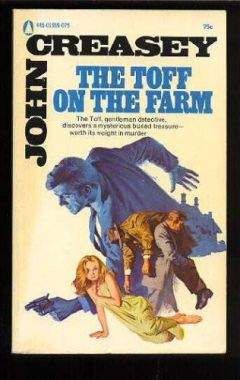
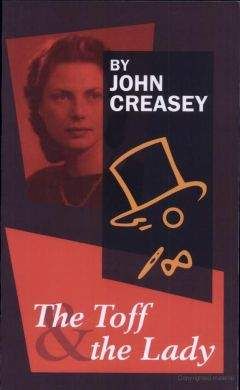
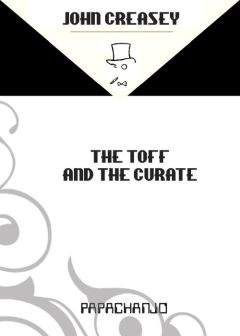
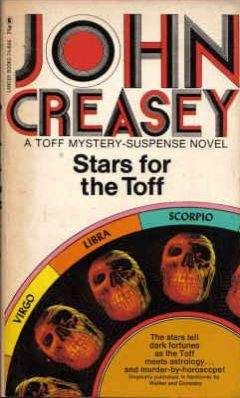

















![Судьба, возможно, ты ошиблась [СИ] - Аграфена](/uploads/posts/books/327423/327423.jpg)


